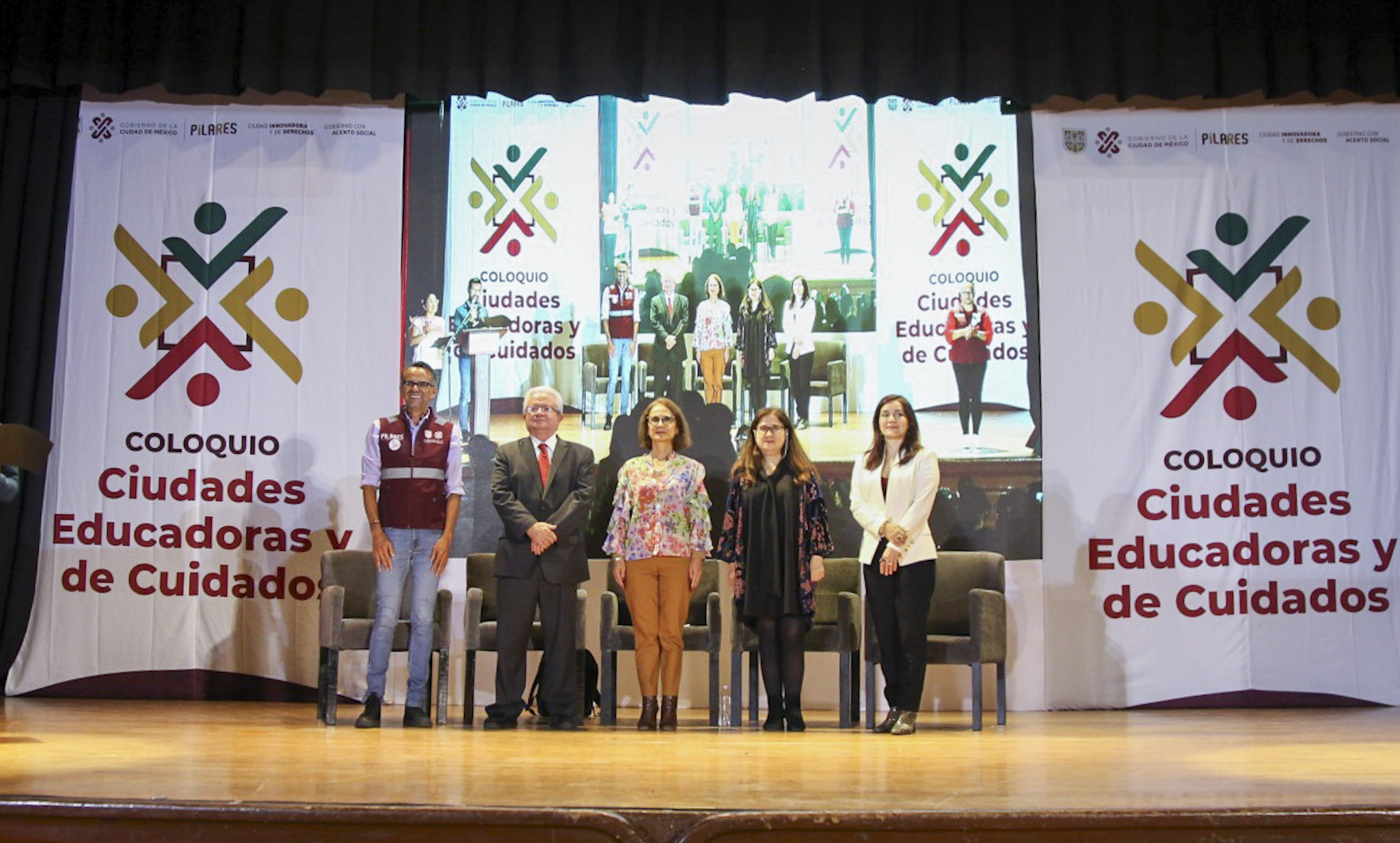Citizen Initiative for the Promotion of the Culture of Dialogue
On September 2, 3 and 4, the Colloquium Educating and Caring Cities-CDMX took place. It was a space for dialogue, debate and reflection on what an educating and caring city is and what it does. Experts on the subject, academics, local government officials and representatives of international organizations participated in three roundtable discussions, presenting their vision and expertise on public policies or programs that have been implemented in Mexico and in the country's capital to consolidate an Educational System that will be complemented by an Integral Care System.
Some of the main ideas put forward by the participants are listed below:
- The CDMX Government will work on a comprehensive well-being model system that is expressed in the Utopias and the Pillars in all territories (Municipalities).
- Education is more than traditional schooling; education is a permanent learning process. The work of the Pillars is a key factor in this.
- Neoliberalism is an economic, social and cultural regime of social subjectivities that reduced education to an instrumental tool where the important thing is to train people for a specific job or activity.
- We have a much broader vision: education is education for life, it is education for work, it is education for citizenship, to have educated, informed and cultured societies; it is to have better societies and people.
It is not about reducing education to schools, it is an institutional part complemented by non-institutional practices. - The aim is to reduce the social gap in education and contribute to overcoming educational inequalities.
- We must erase from the imagination that education is a social equalizer in itself, because this is not always true. Education can also produce inequalities. The goal is to close these inequalities and Pilares is a huge effort to access rights and reduce inequalities. It is a tool for social equality.
- We are moving towards the formation of a public care system, in which schools will play a fundamental role.
- The care system today is a pillar of history that has to do with the reproduction of life and the set of human activities.
- The care system must be placed at the center of policies based on a full life with well-being and rights, as established by the Constitution of Mexico City, the only constitution that has incorporated the right to care.
- Caregiving is a daily activity that regenerates physical and emotional well-being, essential to sustain life and considered a fundamental human right.
- Care work is undervalued socially and economically, mainly affecting women, who bear the brunt of this unpaid work.
- Women spend more time on caregiving than men, which limits their employment, educational and social security opportunities, generating a vicious circle of poverty and inequality.
- The demand for care is increasing, especially due to the ageing of the population, which makes it urgent to address the issue in public policy.
- Unpaid care work represents 24.3% of Mexico's GDP, of which 72% is contributed by women.
- The right to care includes caring, being cared for and self-care, and it is the responsibility of the State to guarantee this right with the participation of all sectors.
- There are international regulatory frameworks, such as the 2030 Agenda and ILO conventions, that promote the recognition of care work and the creation of national care systems.
- Mexico has made progress in creating legal frameworks, such as a bill for a National Care System and the constitutional recognition of the right to care.
- These systems include the expansion of public services, labour regulation of those who provide care, the professionalisation of care work, information management and cultural change towards co-responsibility.
- In addition to improving the well-being of those who care for and are cared for, investment in these systems can create jobs, improve the economy and increase tax revenue.
- It is necessary to process tools such as cost methodologies, care maps, gender audits and curricular proposals to promote the creation of local care systems.





